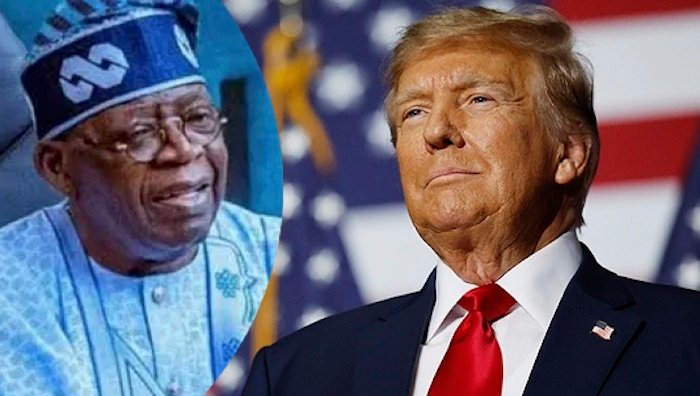NIGERIA’s already struggling economy may be headed for a deeper crisis if former U.S. President Donald Trump follows through on his latest threat to impose an additional 10% tariff on countries aligning with the BRICS bloc, a coalition that Nigeria formally joined as a partner earlier this year.
The term BRICS originally referred to Brazil, Russia, India, China, and South Africa, a group of major emerging economies that have worked to build an alternative to Western-dominated global institutions. In 2024, the bloc expanded to include Egypt, Ethiopia, the United Arab Emirates, Iran, Saudi Arabia, and Indonesia. Nigeria was officially admitted as the ninth partner country in January 2025.
Speaking on his Truth Social platform, Trump lashed out on Monday, saying:
“Any country aligning themselves with the Anti-American policies of BRICS will be charged an ADDITIONAL 10% Tariff. There will be no exceptions to this policy.”
The message came just ahead of the 17th BRICS Summit in Rio de Janeiro, Brazil, which President Bola Tinubu is attending at the invitation of Brazilian President Luiz Inácio Lula da Silva. Tinubu’s presence underscores Nigeria’s new ‘partner country’ status within BRICS, a level below full membership but one that allows participation in summits, dialogues, and key initiatives.
Nigeria’s status upgrade from guest to partner was formalized at the 16th BRICS Summit in October 2024 and marks a significant pivot in foreign policy, aligning more closely with the group’s vision of multipolar global governance.
However, that shift is now attracting the wrath of the United States and with it, potential economic pain.
BRICS leaders have increasingly voiced opposition to what they call U.S. “unilateralism,” including indiscriminate tariffs and geopolitical interventions. At the Rio summit, the group condemned Trump’s trade policies and recent U.S.-Israeli strikes on Iran. In response, Trump doubled down on Monday night, labeling BRICS “anti-American” and reaffirming the planned tariff hike.
Nigeria’s economy, already rattled by inflation, foreign exchange volatility, and declining oil revenues, may not withstand another external shock. With U.S.-bound exports, particularly crude oil at risk, analysts warn that the tariff could derail Nigeria’s fragile economic recovery.
Although the U.S. accounts for a modest share of Nigeria’s total trade, it remains one of the country’s most significant buyers of crude oil, which makes up over 90% of Nigeria’s exports to America.
Secondary exports such as fertilisers, cocoa, sesame, cashew nuts, and manufactured goods, may also be hit by increased tariffs, threatening Nigeria’s long-term goal of diversifying its economy away from oil.
Since 2023, Nigeria has battled a slew of economic challenges. Headline inflation soared to 28.92% in December 2023, up from 18.85% the previous year, peaking at 34.2% in mid-2024 before easing to 27.50% in 2025, according to the Central Bank of Nigeria (CBN).
To stem the crisis, the CBN has implemented bold policies, including the removal of fuel subsidies and a floating naira exchange rate. Despite these moves, structural weaknesses remain, particularly in manufacturing and non-oil exports.
With the U.S. threatening to shut its doors further to Nigerian goods, hopes for export diversification may dim.
Tinubu’s government has defended its deeper BRICS engagement as a strategic move to gain leverage in global trade and finance, especially through the New Development Bank (NDB) and BRICS’ proposed alternative currency systems.
But critics warn that the potential cost, including alienating Nigeria’s traditional Western partners could outweigh the benefits in the short term.
If Trump’s threat materializes and Nigeria becomes subject to punitive tariffs, the decision to court BRICS may come under domestic scrutiny, especially with general elections looming in 2027.
Trump has set an August 1 deadline for countries to “reach deals” or face unilateral trade penalties. While it remains unclear whether his threat will become policy or survive legal and diplomatic hurdles — markets and policymakers in Abuja are already bracing for impact.
If nothing else, Nigeria’s position between two global economic poles, the U.S.-led West and the BRICS bloc has never been more precarious.







